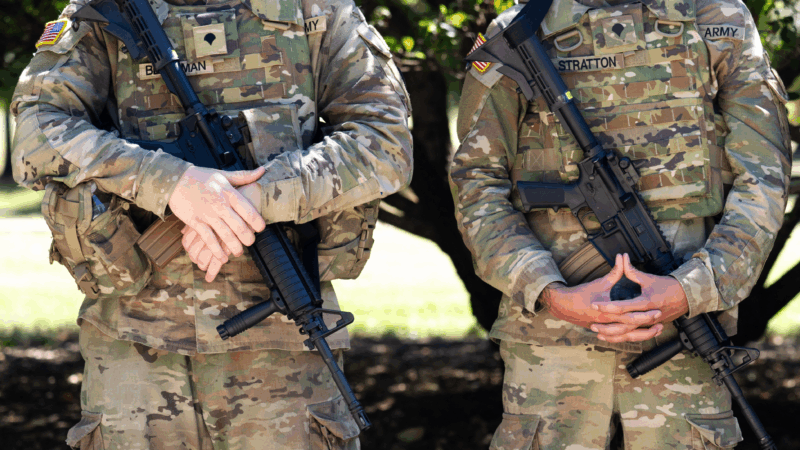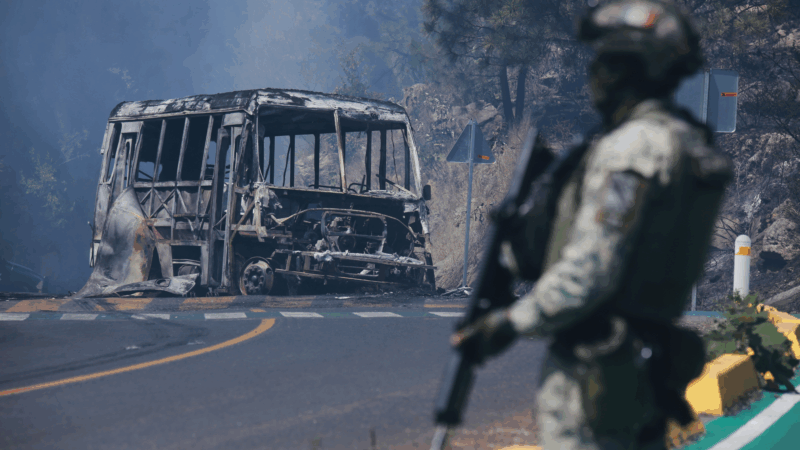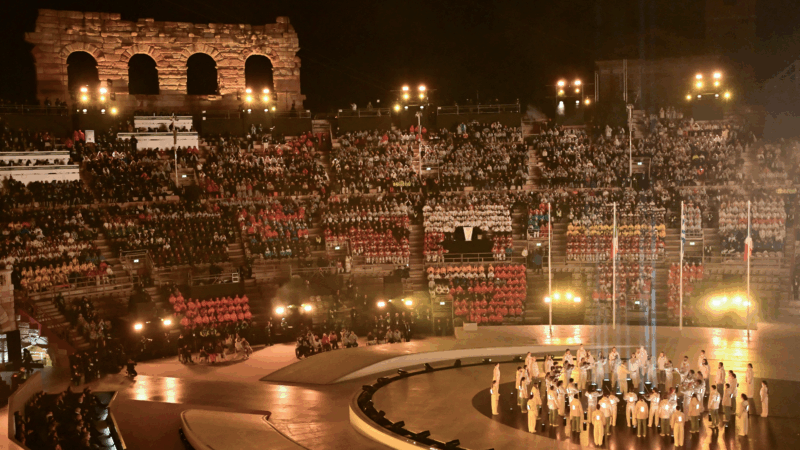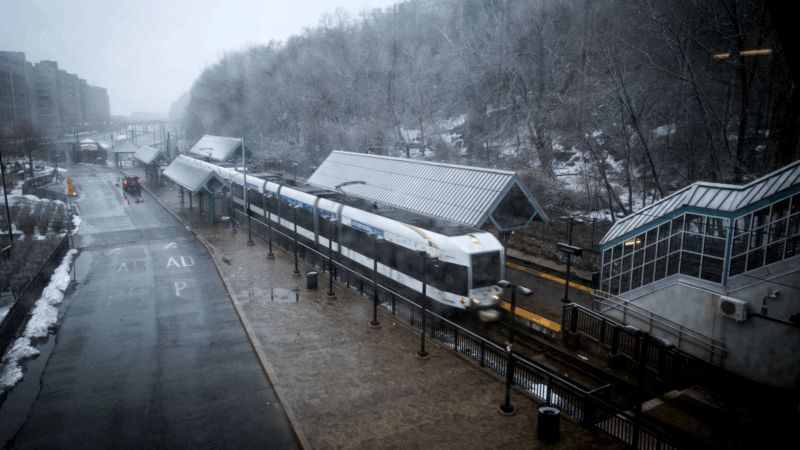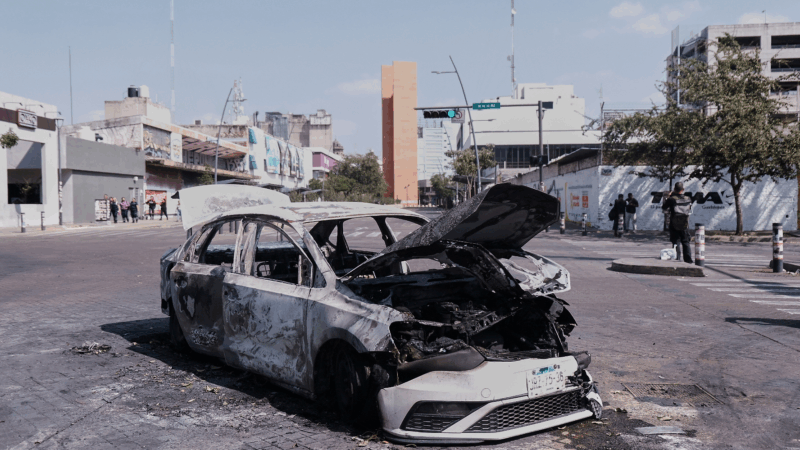Where things stand with Trump’s National Guard deployments
The Trump administration has deployed or threatened to deploy National Guard troops in more than half a dozen American cities that it says are crime-ridden.
The announcements have led to protests, lawsuits and, in certain cases, open arms.
With so many cities, agencies and legal challenges in the mix, we break down where everything stands with these deployments.
Which cities are being targeted?
President Trump sent thousands of National Guard troops into Los Angeles in June and into Washington, D.C. in August.
That was the start of a series of maneuvers from the Trump administration to deploy troops across various U.S. cities that have continued into September. On Tuesday, Attorney General Pam Bondi posted on social media that a federal task force to tackle crime was operational in Memphis, Tenn., but she didn’t say whether it included National Guard troops.
Illinois Gov. JB Pritzker has said the Trump administration wants to deploy 100 troops to Chicago and the Oregon National Guard says it is working to comply with Trump’s call for 200 troops in Portland, NPR member station Oregon Public Broadcasting reported.
In Louisiana, Gov. Jeff Landry requested up to 1,000 troops to help with “high crime rates” in cities like New Orleans, Shreveport and Baton Rouge. And Missouri Gov. Mike Kehoe authorized his state National Guard to assist with “administrative, clerical, and logistical duties” at Immigration and Customs Enforcement processing facilities after a request from the Department of Homeland Security.
Trump has also namechecked cities like Baltimore, where Maryland Gov. Wes Moore pushed back on the idea of troops in the streets and announced more state resources to combat crime.
Are these deployments legal?
There are two laws that come up repeatedly when that question is raised.
The Home Act Rule gives the president command of Washington, D.C.’s National Guard, where troops remain.
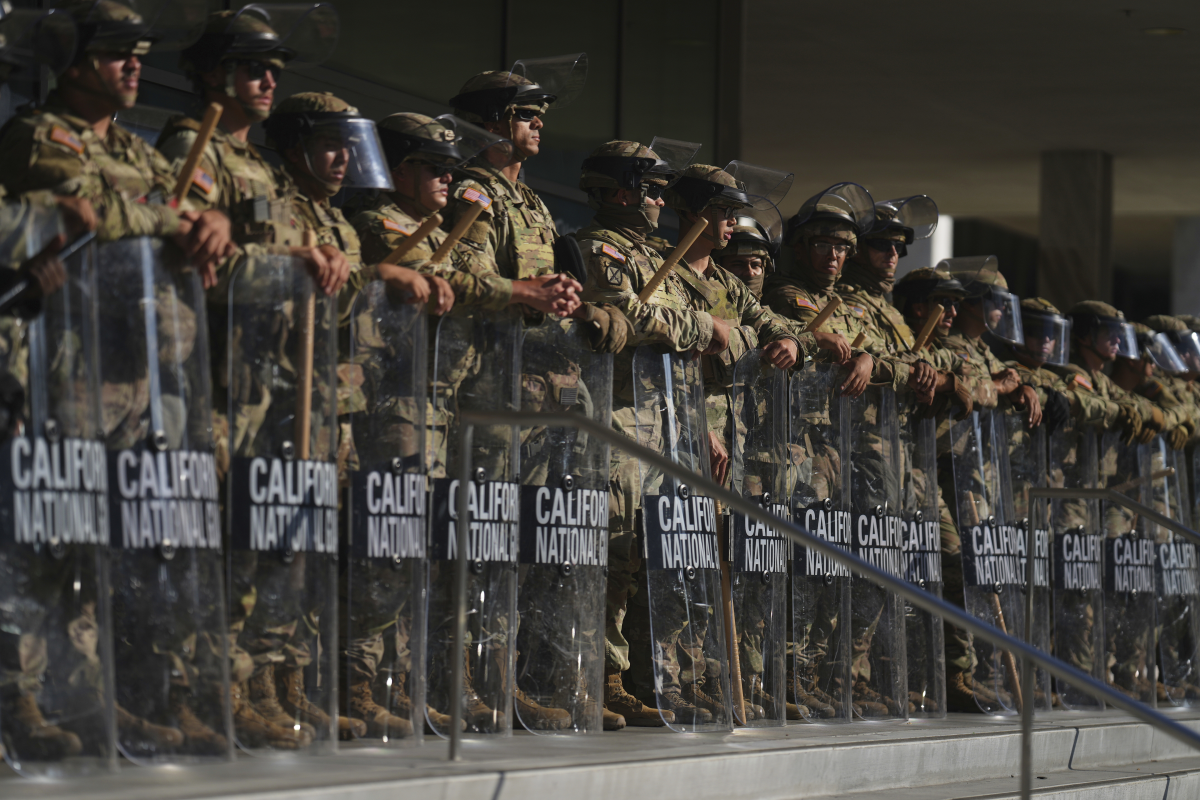
But that’s not the case in other states. And The Posse Comitatus Act prohibits the military from engaging in domestic law enforcement without permission from Congress. And U.S. District Judge Charles R. Breyer ruled that the troop deployment in Los Angeles violates that act, although the ruling only applies to California.
Oregon and Portland are seeking a restraining order against the deployment, saying Trump overstepped his legal authority, OPB reported.
Deployments in states run by Republicans, however, may be more legally sound, say experts.
“If the governor wants to invite troops from other states in — it may or may not be pointless — but legally speaking it’s not necessarily problematic, as long as they’re respecting people’s constitutional rights,” says Rosa Brooks, a Georgetown University law professor previously told NPR.
Is there a pattern developing?
One clear pattern is the partisan divide. Democratic governors like California Gov. Gavin Newsom, Pritzker of Illinois and Oregon Gov. Tina Kotek have opposed the deployments.
Newsom previously told NPR Trump’s order to send Marines alongside National Guard troops in his state was “illegal” and “immoral.” And Pritzker on X called on Trump to “Stop using military troops and ICE to invade and disrupt American cities.”
Republican governors, meanwhile, welcome the interventions.
And then there’s a larger pattern that legal experts say is the normalization of armed uniformed troops on US streets that is challenging the long history in the US of limiting the role of the military domestically.
“It continues to get Americans used to the idea that that’s a normal thing, and that as you go about your daily business, you should just get used to it, and that’s the way it’s going to be. And is that intimidating? Is that chilling to most ordinary people? It is to a lot of people,” Brooks says.
Mexico fears more violence after army kills leader of powerful Jalisco cartel
School was canceled in several Mexican states and local and foreign governments alike warned their citizens to stay inside following the army's killing of the leader of the Jalisco New Generation Cartel, Nemesio Rubén Oseguera Cervantes, "El Mencho," and the violence it spurred
Newly discovered dinosaur species was a fish-eater with a huge horn
The semi-aquatic dinosaur, Spinosaurus mirabilis, was discovered by an international team of scientists working in Niger.
Reporters’ notebook: The Olympics closing ceremony is way more fun than you’d think
Olympics opening ceremonies tend to get more love than their closing counterparts. But a pair of NPR reporters who watched both in Italy left with a newfound appreciation for the latter.
Northeast readies for a major winter storm, with blizzard warnings in effect
New Jersey through Massachusetts could see 2 feet of snow. New York City's mayor said the city had not "seen a storm like this in a decade."
Mexican army kills leader of Jalisco New Generation Cartel, official says
The Mexican army killed the leader of the powerful Jalisco New Generation Cartel, Nemesio Rubén Oseguera Cervantes, "El Mencho," in an operation Sunday, a federal official said.
Ukraine’s combat amputees cling to hope as a weapon of war
Along with a growing number of war-wounded amputees, Mykhailo Varvarych and Iryna Botvynska are navigating an altered destiny after Varvarych lost both his legs during the Russian invasion.

